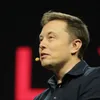Neuralink's first user: Life after the brain implant
Noland Arbaugh has shared his experience of being the first-ever human with Neuralink's brain chip implant while also revealing the hacking risks involved with it.
Meet Noland Arbaugh, he is a 30-year-old quadriplegic (paralysed from the shoulders down) who is the first recipient of Elon Musk's Neuralink brain implant in January this year. The concept of a brain chip inside humans has been controversial due to the fear of humans losing control or giving away too much personal information.
However, this technology can tremendously help people suffering from neurological problems which is what Neuralink aims to solve. Being the first ever human with a brain chip implant, Noland recently shared his experience in detail while also answering what happens if the chip gets hacked! So, read along!
How does the Neuralink device work?

The Neuralink device called "The Link" is about the size of a coin and is fully implanted under the skull. It uses 64 ultra-thin threads containing 1,024 electrodes, to read neuron activity and connect brain signals with a smartphone or computer. This allows Noland to control a PC with only thoughts.
While Arbaugh initially faced some complications when the threads became loose from his brain, affecting performance, Neuralink was able to fix the issues. They refined the processing algorithm, and made the system more sensitive to mouse motion commands, resulting in better performance for Arbaugh.
Noland suffered a spinal cord injury 8 years ago causing him to be paralysed from the shoulders down but now he can do many things by using his thoughts! Arbaugh demonstrated how the chip allows him to control a computer mouse pointer by simply imagining its movements in an exclusive interview with NewsNation's Chris Cuomo. He can now easily communicate with everyone, play games, and read books.
Hacking risks of chip
Noland Arbaugh discussed the potential hacking of his brain chip in a recent podcast interview with Joe Rogan. He mentioned that although there is limited data that could be accessed by hacking the chip, such as the data collected by Neuralink and his brain signals, there is still a potential risk involved.
In the podcast, Noland was asked if the chip was hijacked would it turn humans into cyborgs? He explained that since he can control a cursor on his computer using only his brain if the chip gets hacked, the cursor control could be snatched away from him. This could lead to hackers gaining unauthorised access to his PC and sensitive information such as his emails, chats and messages. However, he was warned of these potential risks beforehand and stated that he was not worried about the hacking part. He believes "It is what it is."
Neuralink's plans
With a focus on revolutionising neuroscience, Elon Musk's brain tech firm Neuralink plans to implant their experimental brain chip device in 10 patients this year. They have received approval from The Food and Drug Administration (FDA) for the next patient scheduled for June. So far, the company has received over 1,000 quadriplegic applicants interested in partaking in their clinical trials.
The takeaway
Elon Musk's Neuralink has been actively experimenting and researching around its brain chip. Noland is their first recipient who has successfully been able to gain some independence despite being paralysed. With the second patient ready to undergo the procedure, it will be interesting to see the success of this brain tech startup.








